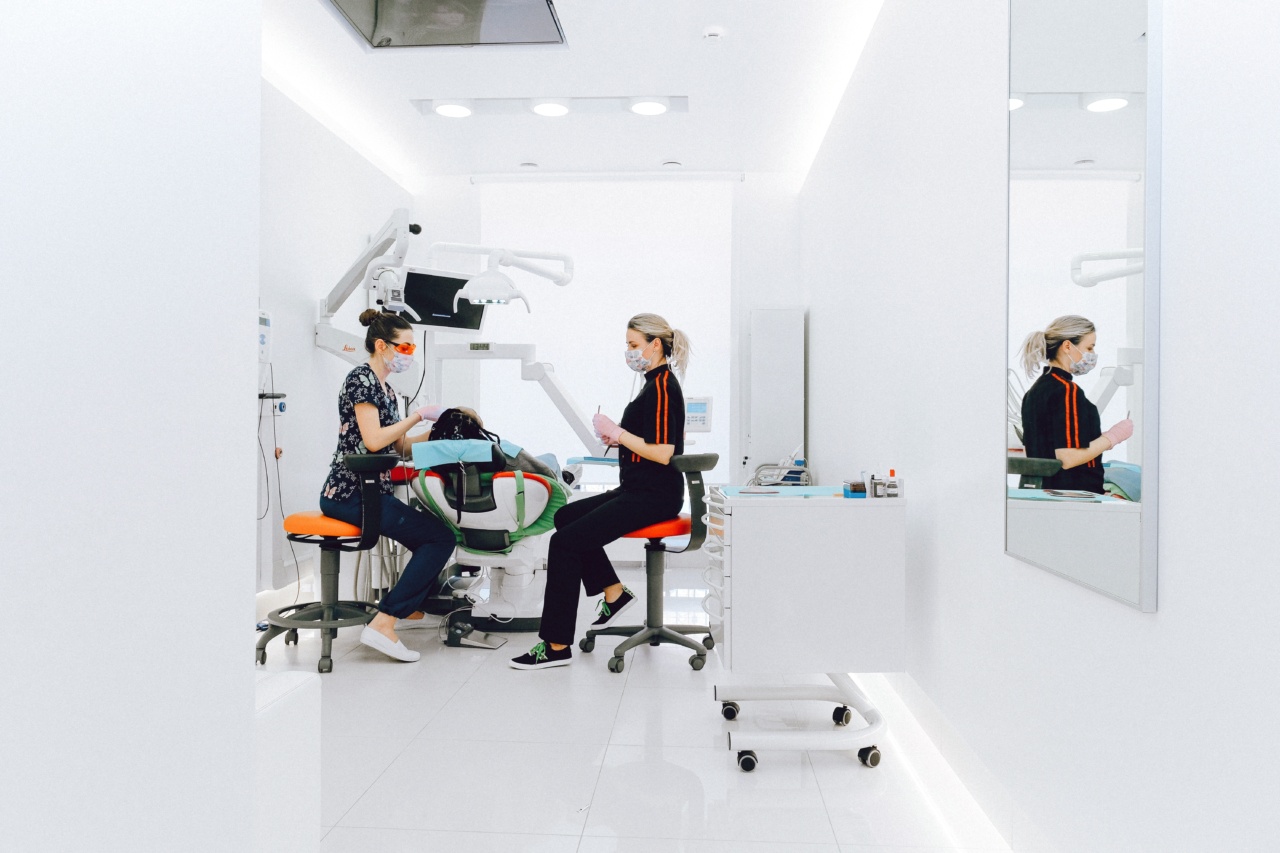Orthodontic treatment is a type of dental treatment that aims to correct misalignment and other issues related to the teeth and jaw.
It involves the use of devices such as braces, clear aligners, and retainers to gradually shift the teeth into their proper positions. While orthodontic treatment can effectively improve the alignment and appearance of the teeth, it is important to note that certain habits and lifestyle choices can have a negative impact on the success of the treatment.
Effects of Beverages on Orthodontic Treatment
One particular factor that can influence the outcome of orthodontic treatment is the consumption of certain beverages. Beverages such as soda, fruit juice, energy drinks, and sports drinks are popular choices for many individuals.
However, these drinks have been found to have detrimental effects on both oral health and the success of orthodontic treatment.
1. Increased Risk of Tooth Decay
Sugar-sweetened beverages are known to be a major contributor to tooth decay. The high sugar content in these drinks provides a food source for bacteria in the mouth, which then produce acids that demineralize the enamel and lead to dental cavities.
When individuals with braces or other orthodontic appliances consume sugary beverages, the sugar can easily get trapped in the brackets, wires, or aligners, thus increasing the risk of tooth decay even further.
2. Acid Erosion
Many common beverages, such as soda and fruit juices, are highly acidic. Acidic drinks have the potential to erode the enamel, which is the outermost protective layer of the teeth.
When the enamel is worn down, it makes the teeth more susceptible to decay and sensitivity. Additionally, acid erosion can also affect the bonding materials used in orthodontic treatment, leading to a higher risk of brackets becoming detached or aligners losing their effectiveness.
3. Discoloration and Staining
Certain beverages, like coffee, tea, and red wine, are known to cause discoloration and staining of the teeth. While these issues can affect anyone, individuals who are undergoing orthodontic treatment may be at a higher risk.
Brackets and wires can create small areas where stain-causing substances can accumulate, resulting in uneven tooth color once the appliances are removed. This can be especially frustrating for patients who have invested time and effort into their orthodontic treatment to achieve a beautiful smile.
4. Increased Risk of Gum Disease
Orthodontic appliances make it more difficult to properly clean the teeth and gums. It is crucial for individuals undergoing treatment to maintain a good oral hygiene routine to prevent the buildup of plaque and tartar.
Beverages high in sugar and acid can further contribute to the development of gum disease if proper oral care is not followed. Gum disease can lead to gum inflammation, bad breath, and even tooth loss if left untreated.
5. Weakening of Teeth and Orthodontic Appliances
Another concern related to the consumption of certain beverages during orthodontic treatment is the potential weakening of teeth and orthodontic appliances. Acidic drinks can weaken the enamel, making it more prone to chipping or breaking.
Additionally, the sugar and acid found in these beverages may deteriorate the materials used in braces or other orthodontic appliances, compromising their ability to effectively move the teeth.
Tips for Minimizing the Impact of Beverages
While it may be challenging to completely avoid beverages that pose risks to orthodontic treatment, individuals can take certain precautions to minimize their impact:.
1. Choose Beverages Wisely
Opt for water, unsweetened tea, or milk instead of sugary or acidic drinks. These alternatives are not only better for oral health but also for overall well-being.
2. Use a Straw
When consuming beverages that can stain or erode the teeth, it is advisable to use a straw. This helps to minimize direct contact between the liquid and the teeth, reducing the risk of discoloration and enamel erosion.
3. Rinse with Water
After consuming any beverage, including those considered harmful, rinsing the mouth with water can help remove residue and neutralize acids. Swishing water around the mouth can aid in removing sugars and reducing the risk of tooth decay.
4. Practice Good Oral Hygiene
Regardless of beverage consumption, maintaining proper oral hygiene is essential during orthodontic treatment. Brushing carefully after every meal and flossing regularly can help prevent plaque buildup and keep the teeth and gums healthy.
5. Visit Your Orthodontist Regularly
Regular check-ups with your orthodontist are important to monitor the progress of your treatment and address any concerns.
They can provide guidance on properly caring for your orthodontic appliances and answer any questions you may have about beverage choices.
The Connection Between Beverages and Orthodontic Treatment Failure
It is evident that the beverages we consume can significantly impact the success of orthodontic treatment.
From an increased risk of tooth decay and gum disease to tooth discoloration and appliance damage, the effects of beverages on oral health should not be underestimated.
By being mindful of our beverage choices, adopting healthy oral hygiene habits, and seeking guidance from dental professionals, we can mitigate the risks associated with consuming harmful beverages during orthodontic treatment.
Remember, prioritizing your oral health throughout the course of your orthodontic journey will contribute to achieving the desired outcome – a straight, healthy, and beautiful smile.



























